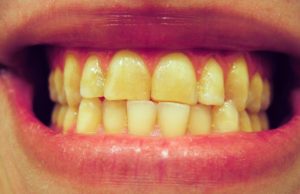Are your teeth starting to look shorter? Do they feel worn down? Do you wake up with a sore jaw? If you answered yes to any of those questions, then you might be teeth grinding.
Grinding or clenching your teeth and jaw, also known as bruxism, is more common than you think! It is present in approximately 20% of the population.
Teeth grinding or teeth clenching is important to be aware of, whether it happens at work when you are stressed (awake bruxism) or at night when you are dreaming away (sleep bruxism).
Reasons of Teeth Grinding
Here are 4 possible reasons of teeth grinding:
1. Genetics – Does it run in your family?
2. Stress and Anxiety – It does seem like stress and bruxism go hand in hand. When we are stressed, we hold a lot of tension in our neck and jaw muscles. Studies have found that when bruxism is related to stress, it’s the kind that happens during the day. Do you notice yourself clenching while cramming for exams? Take a deep breath and relax your lower jaw.
3. Airway issues such as sleep apnoea and snoring – Addressing and treating the underlying airway issue is crucial to a well-rested sleep and ensuring your brain is getting enough oxygen. Talk to your dentist or general health practitioner if you are concerned that you may have sleep apnoea.
4. Medication – It has been shown that antipsychotics and antidepressants (SSRIs) are associated with bruxism. It is a possible adverse reaction to these medications and can occur a few weeks after starting the drug and can take a few weeks to stop occurring after cessation of the drug. Do not stop any medications without consulting your doctor.

Effects of Teeth Grinding
The large forces created by clenching can cause cracks and/or fractures on your teeth, fillings, or crowns. This can lead to sharp or rough edges, pain and sensitivity if left untreated. When teeth are worn down the second layer of the tooth, dentine, is exposed. Dentine wears down faster than the outer enamel so the teeth will continue to wear with grinding and your teeth may become more sensitive to cold. Headaches and pain can also be a consequence of bruxism.
Signs of Teeth Grinding
- Headaches and earaches: If you suffer from frequent headaches and earaches, especially in the morning, it could be a sign that you are grinding your teeth while you sleep.
- Jaw pain: Grinding your teeth can cause tension and pain in your jaw muscles, leading to jaw pain or stiffness.
- Tooth sensitivity: Excessive teeth grinding can wear down the enamel on your teeth, making them more sensitive to hot and cold temperatures.
- Worn-down teeth: Over time, teeth grinding can cause your teeth to become worn down, chipped, or cracked.
- Clicking or popping in the jaw: If you experience clicking or popping sounds when you open and close your mouth, it could be a sign of teeth grinding.
If you notice any of these signs, it’s important to talk to your dentist. They can examine your teeth and jaw to determine if you are grinding your teeth and recommend the appropriate treatment to prevent further damage.
How Long Does Teeth Grinding Pain Last
The pain from teeth grinding can last differently for everyone. Some may find the pain fleeting, easing within a few hours of waking up. Others might experience soreness that lingers throughout the day, especially if the grinding continues in moments of stress or concentration.
Typically, without any intervention, immediate pain relief can often be felt once the jaw relaxes and stops clenching. However, chronic grinders could see their pain last longer due to the sustained damage and stress on their teeth and jaw muscles.
How to Stop Teeth Grinding
At present, there is no cure to teeth grinding or teeth clenching. We can manage it by protecting the teeth and preventing further cracks from forming. An occlusal splint or teeth grinding splint can be made to wear at night. While you will still grind your teeth, the splint will physically separate the teeth from touching each other and you will wear down the splint material instead. What’s the catch? You have to wear it every night!
The thickness of the splint can help with jaw disorders (TMD) as well by causing the joint to separate and relieve the pressure on the joint. Some people experience soreness in their jaw from grinding, moist heat packs and gentle exercises can help alleviate this pain.
If you have already worn down your pearly whites, then fillings and/or crowns may be indicated.
Prevention is key! If you are concerned that you may clench or grind your teeth, contact us for a consultation.

Article by Coolum Beach Dentist, Dr Saba Ghahari
References:
1. Demjaha, G., Kapusevska, B., & Pejkovska-Shahpaska, B. (2019). Bruxism Unconscious Oral Habit in Everyday Life. Open Access Macedonian Journal Of Medical Sciences, 7(5), 876-881. doi: 10.3889/oamjms.2019.196
2. Behr, M., Hahnel, S., Faltermeier, A., Bürgers, R., Kolbeck, C., Handel, G., & Proff, P. (2012). The two main theories on dental bruxism. Annals Of Anatomy – Anatomischer Anzeiger, 194(2), 216-219. doi: 10.1016/j.aanat.2011.09.002
3. Teoh, L., Moses, G., Duma, S., & Fung, V. (2019). Letters to the Editor: Drug-induced bruxism. Australian Prescriber, 42(4), 120. doi: 10.18773/austprescr.2019.048


